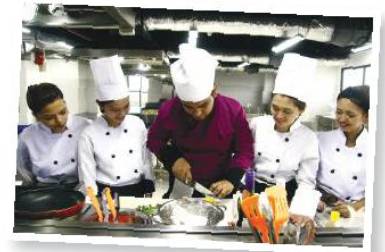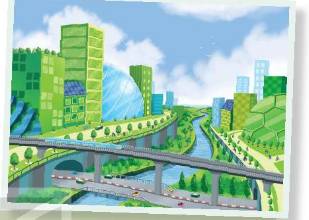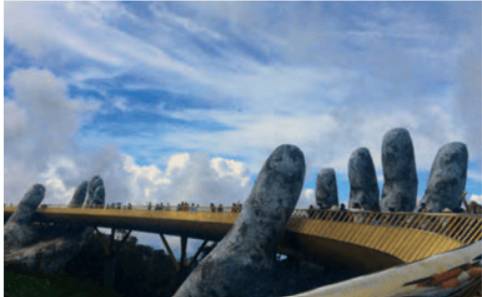Hãy nhập câu hỏi của bạn vào đây, nếu là tài khoản VIP, bạn sẽ được ưu tiên trả lời.

1 Do you think it is necessary for pesticides to be banned? Why?
(Theo bạn có cần cấm thuốc xịt cỏ không? Tại sao?)
Yes, I do. Pesticides are harmful to not only the insects they're meant to kill but also to other animals, plants, and humans who consume them. They also have long-term effects on the environment, which is why I think a ban on pesticides is necessary.
(Tôi đồng ý. Thuốc trừ sâu không chỉ gây hại cho côn trùng mà chúng định giết mà còn cho các động vật, thực vật khác và con người tiêu thụ chúng. Chúng cũng có những tác động lâu dài đối với môi trường, đó là lý do tại sao tôi nghĩ rằng lệnh cấm thuốc trừ sâu là cần thiết.)
2 Do you agree with the views Rachel Carson expressed in Silent Spring? Why? /Why not?
(Bạn có đồng ý với quan điểm mà Rachel Carson thể hiện trong Silent Spring không? Tại sao có / tại sao không?)
Yes, Silent Spring is still relevant today. It brought about positive changes in the government's policies, leading to the enactment of a national ban on pesticides on agricultural farming. It also sparked the environmental movement, resulting in the establishment of the United States Environmental Protection Agency.
(Vâng, Silent Spring vẫn còn phù hợp cho đến ngày nay. Nó mang lại những thay đổi tích cực trong chính sách của chính phủ, dẫn đến việc ban hành lệnh cấm toàn quốc về thuốc trừ sâu trong canh tác nông nghiệp. Nó cũng châm ngòi cho phong trào môi trường, dẫn đến việc thành lập Cơ quan Bảo vệ Môi trường Hoa Kỳ.)
3 Would you like to be an ecologist? Why? / Why not? If so, what would you most concern yourself about?
(Bạn có muốn trở thành một nhà sinh thái học? Tại sao có? / Tại sao không? Nếu vậy, bạn sẽ quan tâm đến điều gì nhất?)
I would love to be an ecologist because I'm passionate about protecting the environment and all the living organisms on this planet. I think it's essential to understand how ecosystems work and how humans can impact them positively or negatively. If I were an ecologist, I would focus on finding ways to reduce pollution and combat climate change. I would also study the effects of human activities on different ecosystems, such as deforestation and habitat destruction, and finding ways to mitigate these impacts.
(Tôi rất thích trở thành một nhà sinh thái học vì tôi đam mê bảo vệ môi trường và tất cả các sinh vật sống trên hành tinh này. Tôi nghĩ điều cần thiết là phải hiểu hệ sinh thái hoạt động như thế nào và con người có thể tác động tích cực hay tiêu cực đến chúng như thế nào. Nếu tôi là một nhà sinh thái học, tôi sẽ tập trung vào việc tìm cách giảm ô nhiễm và chống biến đổi khí hậu. Tôi cũng sẽ nghiên cứu tác động của các hoạt động của con người đối với các hệ sinh thái khác nhau, chẳng hạn như phá rừng và hủy hoại môi trường sống, đồng thời tìm cách giảm thiểu những tác động này.)

Yes I do. Because our way of life, culture, and thoughts are different from Westerners. A typical example of Western parents who always want their children to be independent and let them decide their own direction. On the other hand, our parents always want us follow their step.

1. Based on the context of the picture, it seems like the students are taking a vocational course in cooking or culinary arts.
2. It's possible that students may need certain qualifications or prerequisites to apply for this course, such as a high school diploma or previous experience in cooking. However, it ultimately depends on the specific requirements of the course and the institution offering it.
3. Students in this course likely expect to learn various cooking techniques and recipes, as well as gain a deeper understanding of the culinary arts. They may also learn about food safety, kitchen hygiene, and restaurant management if the course covers those topics. Additionally, students may hope to gain hands-on experience in cooking and receive feedback on their dishes from their instructor. Overall, the goal of this course is likely to help students develop their skills and knowledge in the culinary field.

1.
Future cities are likely to be more technologically advanced and densely populated than they are today.
(Các thành phố trong tương lai có thể sẽ có công nghệ tiên tiến hơn và đông dân cư hơn so với hiện nay.)
They may also be more sustainable, with green spaces and renewable energy sources.
(Chúng cũng có thể bền vững hơn, với không gian xanh và các nguồn năng lượng có thể tái tạo.)
There may be a greater focus on public transportation and walkability, rather than car-centric design.
(Có thể có sự tập trung nhiều hơn vào giao thông công cộng và khả năng đi bộ hơn là thiết kế tập trung vào ô tô.)
2.
Yes, I think future cities will be smarter and more sustainable.
(Vâng, tôi nghĩ các thành phố trong tương lai sẽ thông minh hơn và bền vững hơn.)
Technology will play a key role in optimizing resource usage, reducing waste, and improving efficiency.
(Công nghệ sẽ đóng một vai trò quan trọng trong việc tối ưu hóa việc sử dụng tài nguyên, giảm lãng phí và nâng cao hiệu quả.)
There is also a growing awareness of the need to reduce our impact on the environment, and sustainability will be a key consideration in urban planning and development.
(Ngoài ra còn có nhận thức ngày càng tăng về nhu cầu giảm tác động của chúng ta đối với môi trường và tính bền vững sẽ là yếu tố chính được xem xét trong quy hoạch và phát triển đô thị.)

1. The Crazy House is the most original and clever home because of its surrealistic and unique design that incorporates natural elements and animal motifs.
2. The living sculptures made by Gregory Kloehn are the most useful from a social point of view because they provide affordable housing solutions for homeless people using recycled materials.
3. I would like to live in the shipping container housing in Brighton because it offers a cozy and private space that is affordable and sustainable.
4. I would not like to live in the Crazy House because its unconventional design may not be practical for everyday living, and may not offer enough privacy or storage space.

Choosing between college or university and vocational school depends on your interests, skills, and career goals. If you are interested in pursuing an academic degree, have a passion for learning, and want to explore different subjects, then college or university is the right choice for you. You will have the opportunity to deepen your knowledge in a particular field, meet new people, and develop transferable skills like critical thinking, communication, and teamwork.
On the other hand, if you have a specific trade in mind, enjoy hands-on learning, and want to start working as soon as possible, then vocational school is the right choice for you. You will acquire the practical skills and knowledge needed for a particular job, receive an apprenticeship, and earn a salary while studying.
Ultimately, the choice between college or university and vocational school depends on your individual needs, interests, and goals. It's important to do your research, talk to educational experts, and consult with your parents, teachers, or career counselors to make an informed decision.

A: Which tour attraction is it?
B: I don't know but I guess it is a famous tourist attraction in the world because I can see many visitors in the picture.
A: Have you been there?
B: Actually, I haven't been there before. That's the reason why I don't know where it is.
A: If you haven't been there, would you like to go?
B: I'm a big fan of traveling, so I would like to go to this place to visit.
A: Why?
B: You know, I like exploring and experiencing a lot of famous tourist attractions. Moreover, if we stand on the bridge in the picture, we can see the beautiful weather and many spectacular views. I’m sure that I will really enjoy that feeling.
Tạm dịch:
A: Đó là điểm tham quan du lịch nào?
B: Tôi không biết nhưng tôi đoán đó là một điểm thu hút khách du lịch nổi tiếng trên thế giới bởi vì tôi có thể thấy nhiều du khách trong bức ảnh.
A: Bạn đã ở đó chưa?
B: Thực ra, tôi chưa từng đến đó trước đây. Đó là lý do tại sao tôi không biết nó ở đâu.
A: Nếu bạn chưa đến đó, bạn có muốn đi không?
B: Tôi là một người rất thích đi du lịch, vì vậy tôi muốn đến nơi này để tham quan.
A: Tại sao?
B: Bạn biết đấy, tôi thích khám phá và trải nghiệm rất nhiều điểm du lịch nổi tiếng. Hơn nữa, nếu chúng ta đứng trên cây cầu trong hình, chúng ta có thể nhìn thấy thời tiết đẹp và nhiều cảnh đẹp ngoạn mục. Tôi chắc chắn rằng tôi sẽ thực sự tận hưởng cảm giác đó.

1. I haven’ visited any castles or palaces in VietNam before. However, I know some of the most famous ones such as Hue Imperial Citadel, the Thang Long Imperial Citadel, and the Ho Dynasty Citadel. These historical sites are significant because they showcase the country's rich history and cultural heritage.
(Tôi chưa từng đến thăm bất kỳ lâu đài hay cung điện nào ở Việt Nam trước đây. Tuy nhiên, tôi biết một số địa điểm nổi tiếng nhất như Cố đô Huế, Hoàng thành Thăng Long và Thành nhà Hồ. Những di tích lịch sử này rất có ý nghĩa vì chúng thể hiện di sản văn hóa và lịch sử phong phú của đất nước.)
2. I haven’t seen this palace before, but I guess it is the Hue Imperial Citadel.
(Tôi chưa nhìn thấy cung điện này bao giờ, nhưng tôi đoán đó là Hoàng thành Huế.)

A: Do you think money can make people happy? Why? / Why
B: It depends on the situation. For example, a billionaire probably won't notice extra money in their bank account. However, a person living in poverty will be very happy with the money, because it means that they'll be able to buy something to eat and survive
A: When is pride good? When is it bad?
B: Pride is good if you helped someone, are the best in the thing you're doing. It's bad if you take pride in being late to work everyday.
A: Is fear over a good emotion? If so, when?
B: Sometimes it's good to show fear, because that means that you're a human and you have emotions just like everyone else. If you show people that you fear something, they may help you.
Tạm dịch:
A: Bạn có nghĩ rằng tiền có thể làm cho mọi người hạnh phúc? Tại sao? / Tại sao
B: Nó phụ thuộc vào tình hình. Ví dụ, một tỷ phú có thể sẽ không nhận thấy có thêm tiền trong tài khoản ngân hàng của họ. Tuy nhiên, một người sống trong cảnh nghèo khó sẽ rất hài lòng với số tiền này, bởi vì điều đó có nghĩa là họ sẽ có thể mua thứ gì đó để ăn và tồn tại.
A: Khi nào niềm tự hào là tốt? Khi nào nó xấu?
B: Tự hào là tốt nếu bạn đã giúp ai đó, là người giỏi nhất trong công việc bạn đang làm. Thật tệ nếu bạn tự hào về việc đi làm muộn hàng ngày.
A: Sợ hãi có phải là một cảm xúc tốt không? Nếu có thì khi nào?
B: Đôi khi, thể hiện sự sợ hãi là điều tốt, bởi vì điều đó có nghĩa là bạn là con người và bạn cũng có cảm xúc như bao người khác. Nếu bạn cho mọi người thấy rằng bạn sợ điều gì đó, họ có thể giúp bạn.




Cooking courses can be an excellent way to learn new cooking skills, improve existing ones, and explore different cuisines. They can also be a fun and social activity, allowing you to meet new people and share your love of food with others.
There are many different types of cooking courses available, depending on your interests and skill level. Some popular options include:
1. Basic cooking courses - These are ideal for beginners who want to learn basic cooking techniques, such as knife skills, ingredient selection, and cooking methods.
2. Cuisine-specific courses - These focus on a specific type of cuisine, such as Italian, French, or Thai, and teach you the skills and techniques needed to cook authentic dishes from that cuisine.
3. Advanced courses - These are designed for more experienced cooks who want to take their skills to the next level and learn advanced techniques, such as molecular gastronomy or pastry making.
4. Specialized courses - These focus on specific areas of cooking, such as baking, grilling, or vegetarian cooking.
Overall, if you enjoy cooking or want to learn how to cook, a cooking course can be a great investment of time and money. Just be sure to choose a course that suits your interests and skill level.